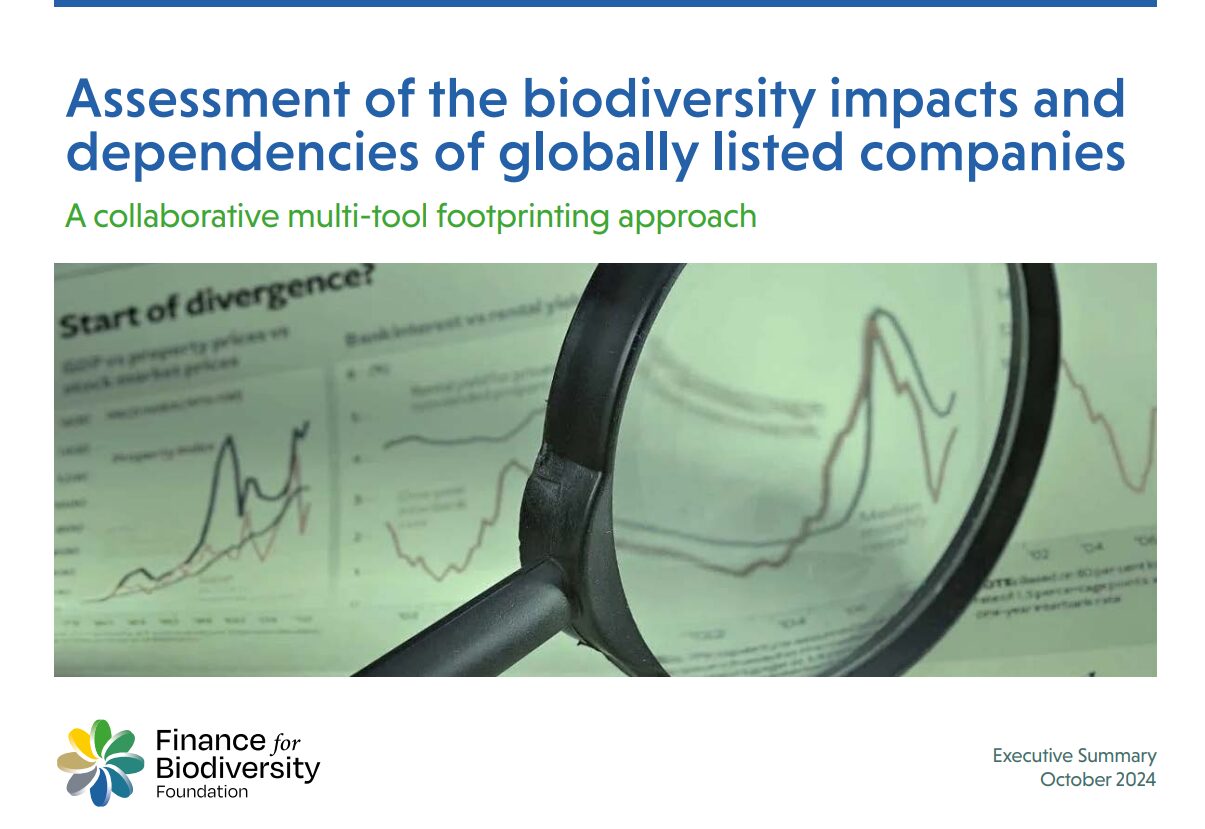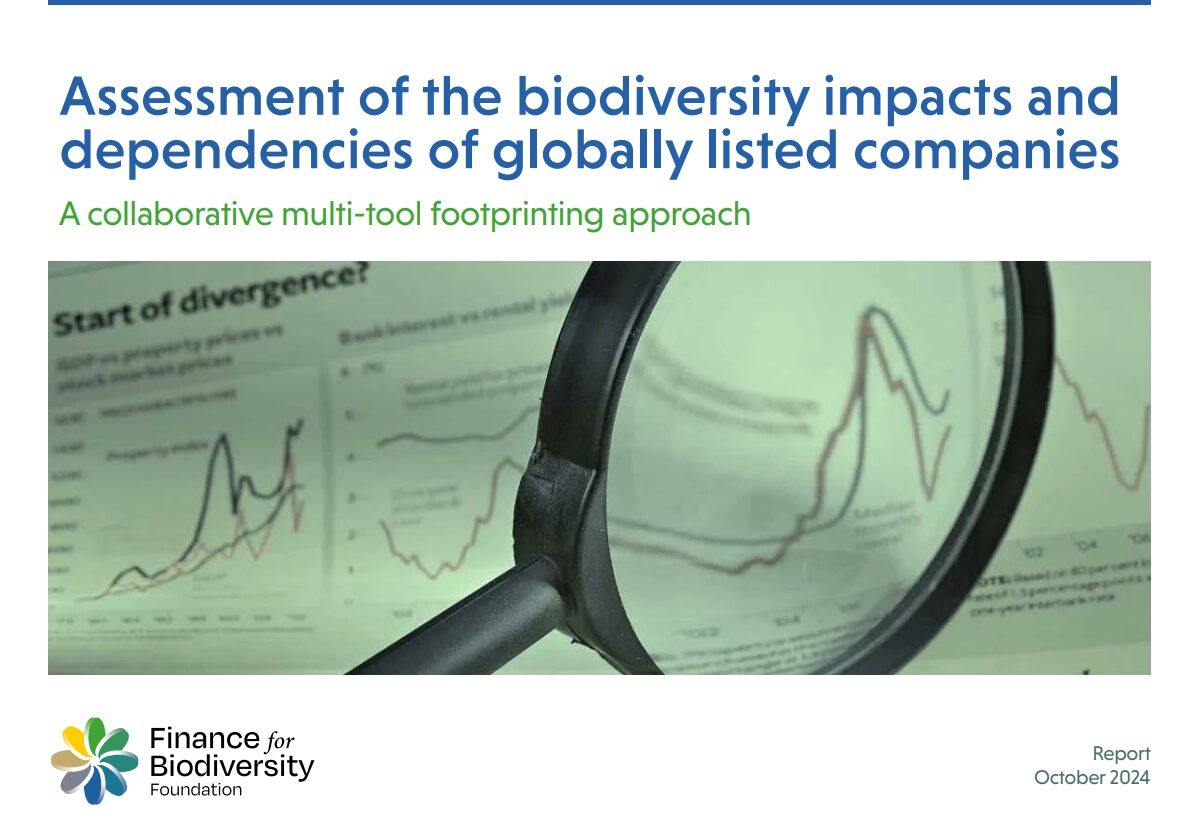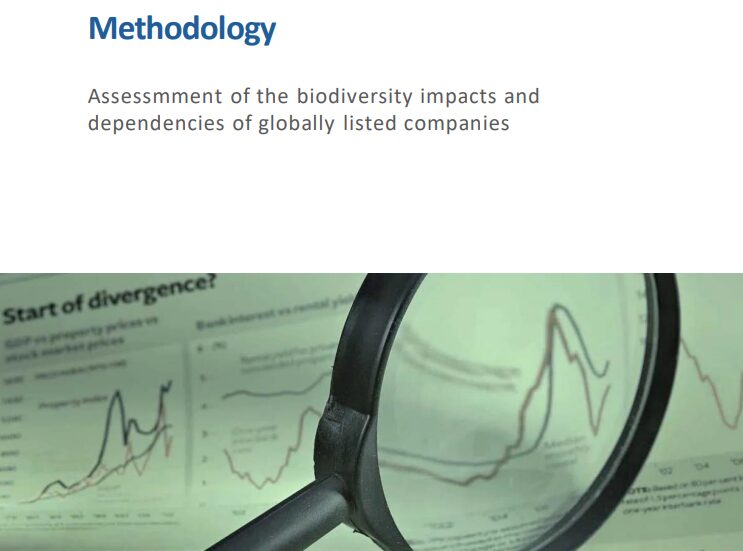FfB Foundation publishes the updated Multi Tool study tracking top biodiversity companies and industries
The Finance for Biodiversity (FfB) Foundation today announces that it has concluded a comprehensive biodiversity footprint assessment of more than 2,300 companies within the MSCI All Country World Index (MSCI ACWI) universe. Since the project’s launch in January 2024, the biodiversity impacts and dependencies of these companies have been estimated, covering both direct operations and value chains. The results were presented during a webinar on October 2nd at 3pm CEST / 2pm BST.
The project builds on a pilot study conducted by the FfB Foundation in 2023, which focused on the MSCI World universe. Unlike the previous study, the current study encompasses a broader range of companies and includes those from emerging markets. It also expands the analysis to include dependencies on ecosystem services and provides a more detailed assessment of impacts at the company level, as opposed to the industry-level analysis of the earlier study.
Key Findings:
- Targeting a small number of companies and industries can significantly reduce negative impacts across the portfolio: Around two-thirds (67%) of the estimated biodiversity impacts within the MSCI ACWI, including company value chains, are concentrated among the top 250 highest-impacting companies. Nearly half (49%) of the impacts come from the top 100 companies, one-third (38%) from the top 50, and the top 10 account for over 15% of the total estimated impact.
- The food products industry shows the highest impact, followed by the oil, gas and consumable fuels industry and the chemicals industry. Among the top 10 highest impacting companies, five are from the food products industry and three from the oil, gas and consumable fuels industry.
- Addressing climate change alone is insufficient to halt biodiversity loss: The main drivers of loss within MSCI ACWI, ranked from highest to lowest, are climate change, pollution, land use and water use. However, material drivers and rankings vary depending on the assessment scope. For instance, pollution and land use dominate the top 10 industries.
- Scope 3 impacts are the most significant across the value chain. These results show the importance of considering the entire value chain in investor engagement programmes.
- Dependencies on ecosystem services: The study explores the reliance of MSCI ACWI companies and industries on 26 ecosystem services. It emphasises that companies with high dependencies on ecosystem services are not inherently negative. Rather, understanding the associated nature-related risks is essential for comprehensive risk management.
- The food products industry has the greatest dependence on ecosystem services. Among the top 10 companies ranked as having a high dependency, nine belong to the food products industry while one is from the beverages industry.
- The MSCI ACWI companies and industries show a heavy dependence on ground and surface water (provisioning services), followed by regulating services including mass stabilisation and erosion control, filtration, flood and storm protection, and water flow maintenance. The main part of companies’ value chains where significant dependencies occur are in scope 3 upstream.
Value for financial institutions
These results offer a valuable starting point and critical insights for financial institutions to tailor investor engagement actions with corporates and refine portfolio management strategies. The data can be used to initially identify priority industries, companies and themes (e.g. dominant drivers across portfolios) for targeted engagement actions. Nevertheless, we encourage financial institutions to complement footprinting methodologies with additional measurement approaches, including location-based techniques, to achieve a more comprehensive assessment of their impacts.
This study presents high-level results and key findings. It is underpinned by detailed company-level data, which will be shared with FfB Foundation members and NA 100 investors — where the FfB Foundation coordinates both the Technical Advisory Group (TAG) and the Science Council. Please reach out to us if you would like to know more about how to become an FfB Foundation member.
Project partners
The FfB Foundation has collaborated with the consultancy Global Balance and received technical support from the consultant Wildcap. The biodiversity footprinting tools utilised for this study are consistent with those employed in the previous pilot study, including:
- Biodiversity Impact Analytics – Global Biodiversity Score (BIA-GBS) tool, co-owned by Carbon4 Finance and CDC Biodiversité
- Corporate Biodiversity Footprint (CBF) tool, developed by Iceberg Data Lab in cooperation with I Care
- Biodiversity Footprint for Financial Institutions (BFFI) tool, developed by ASN Bank, PRé Sustainability and CREM
- Global Impact Database (GID) tool, developed by Impact Institute, a social enterprise and spin-off of True Price.
Further information and case studies on these tools are presented in our 4th Edition of the Guide on Measurement Approaches, written by the FfB Foundation and the European Business & Biodiversity Platform (EU B&B). The fourth edition of this guide is anticipated to be released in the latter half of October 2024, during the COP16. The project has been funded and supported by the Global Commons Alliance´s Accountability Accelerator (GCAAA).
Read and Download here:

|

|

|
Additionally, you can watch the full recording of the webinar here.